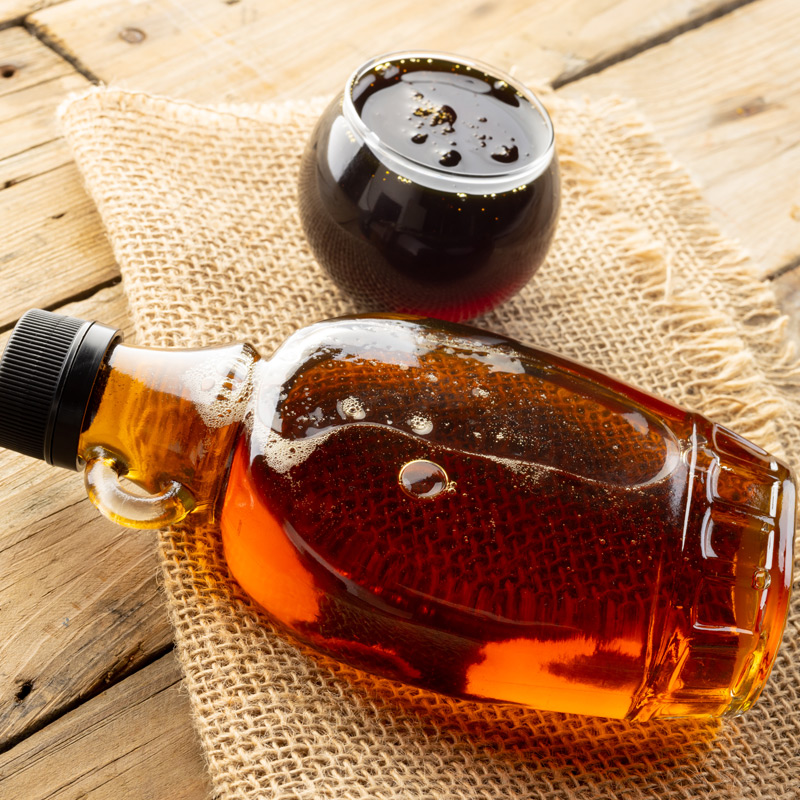
100 gr |
-- |
|
|---|---|---|
| Carbohydrate (gr) | 15.04 |
4928.47 |
| Protein (gr) | 3.59 |
1176.23 |
| Fat (gr) | 12.46 |
4083.43 |
| Fiber (gr) | 1.36 |
445.97 |
| Cholesterol (mg) | 14.64 |
4795.8 |
| Sodium (mg) | 325.27 |
106557.75 |
| Potassium (mg) | 392.16 |
128471.4 |
| Calcium (mg) | 78.15 |
25603.27 |
| Vitamin A (mg) | 46.04 |
15084.01 |
| Vitamin C (mg) | 6.16 |
2019.31 |
| Iron | 0.62 |
203.1 |
Maple syrup is a sweet, sap-based syrup typically derived from the sugar maple and black maple tree species. These trees thrive in cold climates and store starch in their trunks and roots during the winter.
In the spring, as temperatures rise, this starch is converted into sugar and carried upward through the sap of the tree. To collect the sap, a small hole is drilled into the tree trunk, allowing the sap to flow out. The collected sap undergoes heating and evaporation to remove excess water, leaving behind the concentrated maple syrup.
Calories in maple syrup are 27 calories per 100 ml.
The process of producing maple syrup is deeply rooted in the traditions of Canada and the United States, originating from the practices of Indigenous peoples. In late winter, around March, when the trees begin to regenerate after the harsh cold, sap that remains unused by the trees is harvested. Traditional and modern methods are used to collect the sap, but the most crucial step is its concentration.
On average, 40 liters of raw sap are needed to produce just 1 liter of maple syrup, as most of the water is evaporated. The resulting syrup has a unique flavor profile that resembles honey, making it a cherished natural sweetener.
Maple syrup holds a special place in Canadian culture, often regarded as a symbol of the country’s heritage. It is widely used in culinary applications, from pancakes and waffles to marinades and desserts. Its production is also a seasonal event celebrated with festivals and family traditions.
Maple syrup is a relatively low-calorie sweetener, providing approximately 27 calories per 100 milliliters. While primarily composed of natural sugars, it also contains trace amounts of minerals like manganese and zinc, which contribute to its nutritional appeal compared to refined sugar.